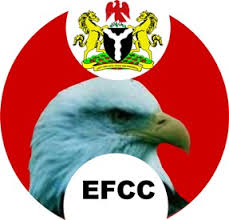Anti-corruption groups have called on the leadership of the Nigerian Senate to expedite the immediate confirmation of the acting chairman of the Economic and Financial Crimes Commission (EFCC), Mr Ibrahim Magu, so as to give the on-going anti-corruption fight the impetus it desperately needs and help sustain the Buhari administration in curtailing impunity in governance.
This latest call on the National Assembly reiterates an earlier call made by the Africa Network for Environment and Economic Justice, ANEEJ, in August 2016 in the wake of delays in the confirmation of Mr Magu as substantive chairman of the EFCC.
The group, rising from the recently concluded National Conference on the Role of the Legislature in the Fight Against Corruption, organised by the National Assembly and the Presidency, noted that prior to the process leading to the confirmation of Magu as chairman of the commission, the National Assembly went on recess. Interestingly, the Senate has since reconvened, screened and confirmed justices of the Supreme Court and Board of the Niger Delta Development Commission (NDDC) forwarded to it long after the submission of Mr Magu’s name for confirmation as EFCC’s chairman by President Muhammadu Buhari.
Section 2 of the EFCC Act says ‘there shall be a chairman who shall be the Chief Executive Officer of the commission, and who shall not be below the rank of an Assistant Commissioner of police. He is to be saddled with the responsibility of running the anti-crime commission’.
The groups verily believe that Mr Magu, a deputy commissioner of police, meets and exceeds this requirement, and therefore his confirmation as EFCC chairman without further delay will give the anti-corruption fight the boost it needs to end the culture of impunity and systemic corruption in Nigeria,’ representatives of the coalition stated in a release.
Members of the platform (ANEEJ, CACOL, CSNAC, Centre for Transparency Advocacy, and Publish What You Pay) contend that the security of tenure for the leadership of the anti-corruption agencies saddled with the task of tackling the debilitating effects of corruption is a globally recognized principle for guaranteeing the independence of anti-corruption agencies. Fighting corruption without the basic guarantee of security of tenure for the head of anti-corruption agencies as has become the trend in the recent past in Nigeria is one of the major limitations of the fight against the scourge of corruption in Nigeria and the Senate of the Federal Republic of Nigeria has a duty to reverse this trend.
The guarantee of security of tenure of anti-corruption agencies officials is at the root of the independence, effective functioning and freedom from undue influence of anti-corruption agencies as prescribed by article 6(2) of the UN Convention Against Corruption (UNCAC) of which Nigeria is a signatory. Anything short of such a guarantee renders the fight against corruption ineffectual, susceptible to political manipulation and compromises the independence of the anti-corruption agencies.
While the EFCC has of late stepped up the fight against acts of corruption and abuse of public trust as exemplified in the tracking of those remotely and directly connected with the misapplication of monies meant to fight Boko Haram insurgency, confiscation of the properties suspected to have been acquired from proceeds of crime linked to politically exposed persons as well as the investigation and prosecution of alleged owners, the lack of a substantive head with a secured tenure has been a major setback in all these efforts. “This delay by the Senate sends a wrong signal of deliberate attempt by the Senate to frustrate the anti-corruption fight or at best, exert political pressure on the EFCC and force it into some compromise with the Senate’’.
Having reconvened from recess almost two months ago, the Senate should therefore treat Mr Magu’s confirmation as substantive executive chairman of the EFCC as a matter of top priority and of urgent national interest, the group said.
We also call on President Buhari to use the on-going second review mechanism of the United Nations Convention Against Corruption (UNCAC), which Nigeria is undergoing to send a strong message to the international community that Nigeria is genuinely committed to the fight against corruption.
Signed
Debo Adeniran – Coalition Against Corrupt Leaders (CACOL)
Lanre Suraju – Civil Society Network Against Corruption (CSNAC)
Adetokunbo Mumuni – Social-Economic Rights and Accountability Project (SERAP)
David Ugolor – Africa Network for Environment and Economic Justice (ANEEJ)
Okey Nwanguma – Network on Police Reform in Nigeria (NOPRIN)
Faith Nwadishi – Publish What You Pay (PWYP) Nigeria
Oluajo Babatunde – Centre for Transparency Advocacy (CTA)











